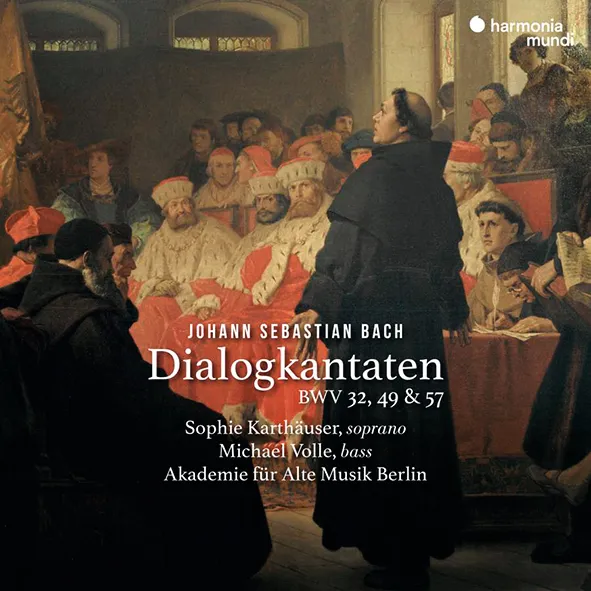
JS Bach: Dialogkantaten ‘Liebster Jesu, mein Verlangen’, BWV 32; ‘Ich geh und suche mit Verlangsen’, BWV 49; ‘Selig ist der Mann’, BWV 57 Sophie Karthäuser (soprano), Michael Volle (bass); Members of RIAS Kammerchor; Akademie für Alte Musik Berlin/Raphael Alpermann Harmonia Mundi HMM 902368 64:38 mins
In the summer of 1725 Bach launched himself into a third cantata cycle for the Leipzig liturgical year, and it’s from this ‘Jahrgang’ that Raphael Alpermann sources three cantatas all linked by a common conceit. Each postulates a dialogue in which a soprano representing the soul interrogates a bass taking the role of Jesus. In pursuing so intimate a conception, Bach throws the musical weight behind artfully conceived arias and duets, the chorus relegated to a simple concluding choral in two instances, and banishment in the third. Two follow hot on the heels of Christmas – BWV 57, a sombre Boxing Day meditation on martyrdom for the feast of St Stephen; BWV 32, destined for the 1st Sunday after Epiphany. And if a cantata for the 20th Sunday after Trinity presupposes the least ‘festive’ offering of the three, nothing could be further from the truth. Exhilaratingly scored for an ensemble including oboe d’amore, violoncello, piccolo and irrepressible organ obbligato, BWV 49 treats its parable of regal banqueting most royally.
Raphael Alpermann’s alert yet instinctively unfussy direction knows how to take corners with a suavity that gladdens, and there’s some delicious punctuation in the continuo and obbligato violin of BWV 32’s bass aria. He also shines in the organ enriched Sinfonia to BWV 49 whose buoyant jubilation oozes genial incisiveness. The cantata’s enraptured final duet finds soprano Sophie Karthäuser and bass Michael Volle at their best, Valle more generally persuasive across the disc; Karthäuser sometimes a little detached but vivacious in BWV 32’s joyfully pointed duet.
Terry Blain
